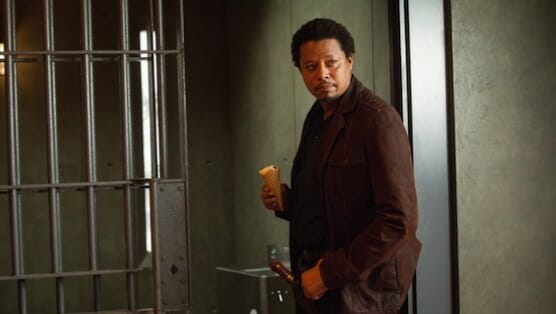Wayward Pines: “Do Not Discuss Your Life Before”
(Episode 1.02)

This is a review. Thus, it is likely to contain spoilers. If you haven’t, as yet, found yourself at liberty to view this episode then consider yourself apprised of the potential jeopardy and proceed at your peril.
While I am aware that the show is based on a series of books by Blake Crouch, I have not read them and do not intend to until this show has ended. I will be reviewing the show solely on its own merits, not as an adaptation.
It is one thing, as an audience, to be in the dark about where a show is heading. The experience can be enthralling or annoying, and sometimes both simultaneously. It is a different thing entirely when you get the sense that the people making the show don’t know where the show is heading or, worse yet, know where to go but don’t know how to get there.
Given that its season only consists of 10 episodes, Wayward Pines seems to most likely fall into the latter category.
The second episode loses much of the energy and forward momentum that the pilot generated. If anything, it feels like a re-tread of the same ground, except with none of the fun riffs on other shows and, by definition, considerably fewer surprises.
The primary problem, I think, is that both the creative team and the characters seem completely ignorant of what kind of show they’re putting on. Tonally, the creative team seems content this week to play it mostly as straight drama. Stylistically, there is little to separate the show from any number of by-the-numbers prime time dramas. Having largely interchangeable episodes is the sort of thing I expect of the CSI and NCIS franchises, but it is bewildering for a show with a short season and a blank slate of a universe to play in. Last week’s episode ended by revealing that Agent Burke is trapped in some sort of cultivated sandbox without giving the audience any idea of who was behind it. Rather than dig deeper, episode two just showed us the sandbox again.
Burke is failing as a lead character so far. He got a pass on the first episode because it was more about world building and plot development than character building. But going back over the same ground a second time leaves us nothing to do except focus on the characters, and what is there isn’t encouraging. I put the bulk of the blame on the writing. Matt Dillon is emoting his ass off with the minuscule depth he is being given, but it is almost impossible to be convincing as the world’s dumbest Secret Service agent. He just refuses to behave as if he understands anything about his circumstances. Let’s recap: He has proven twice that all roads leading out of town lead back into town. He has discovered a wall encircling that town that could keep a T-Rex out (or in). The woman that he came to find is, for some reason, willfully leading a double life here. There appears to be some kind of temporal disturbance that causes time to pass differently for people in the town. The male agent that he was sent to find was murdered and left to rot in an abandoned house. None of his phone calls appear to reach the outside world. He finds out that all of the inhabitants appear to live by a bizarre and strict list of rules.
Yet, despite this overwhelming mountain of evidence that he is not anywhere that remotely resembles the “normal” world, he insists on acting as if nothing is amiss. He continually reminds people that he is a Federal agent despite the fact that it impresses no one. He walks in and out of buildings and businesses with impunity, despite multiple warnings not to and several attempts to hurt, kill, or incapacitate him. Then, out of the blue, we are suddenly expected to believe that he is going to engage in a high-risk escape plan with a woman he has just met, based on cryptic maps and messages written on scraps of paper.
-

-

-

-

-

-

-

-

-

-

-

-

-

-

-

-

-

-

-

-

-

-

-

-

-

-

-

-

-

-

-

-

-

-

-

-

-

-

-

-








































